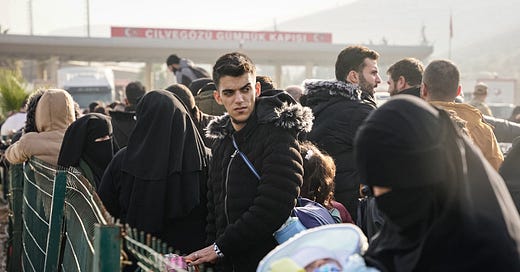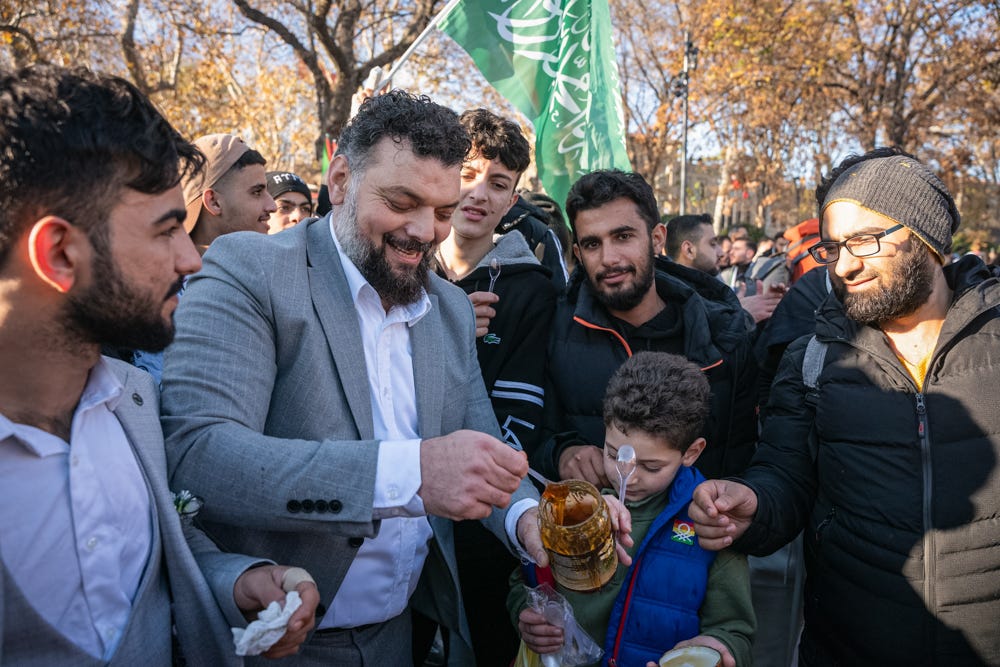ANKARA, İSTANBUL, HATAY — “Long live my dear country, long live Idlib, long live Aleppo.” Those are the words Hussein al-Baghdadi sang Sunday while handing out plastic spoons dipped in honey to Syrians celebrating in Fatih, İstanbul.
Al-Baghdadi, a honey producer, said the fall of former-Syrian Pres. Bashar al-Assad marked one of the best days in his life and the end of more than 50 years of authoritarian, single-family rule in his native country.
“I’ve been here in Turkey for five years. Now I am going back to Damascus,” al-Baghdadi told Turkey recap with sweat beads running down his face from all the singing and shouting.
“I want to go back immediately. My children will come after one or two months,” he said, adding only half of his house in Damascus was still standing.
After 13 years of civil war, the sudden regime change in Syria has been followed by discussions of refugee repatriation in Turkey. More than 3 million Syrians currently live in the nation, where they are often the subject of political campaigns and scapegoats for economic troubles in public discourse.
With the latest developments, expectations for rapid returns are high among many Turkish citizens and Syrian refugees, but migration experts predict the repatriation process will take years, with many Syrians opting to remain in Turkey after studying, working and building their lives in the country.
The majority of the Syrians interviewed by Turkey recap expressed intentions to return to their homeland, though many first wanted to wait a few months to see how events unfold. A minority, mostly Syrian youth and students, said they would continue their studies in Turkey before making decisions.
Omar Kadkoy, foreign policy and migration program coordinator at Heinrich Böll Stiftung Turkey, said the immediate reactions to news in Syria would not necessarily translate to immediate returns.
“Hype is driving such expectations, but history tells a different story,” Kadkoy told Turkey recap. “Asylum seekers and refugees’ repatriation is nonlinear.”
“The number of returnees spikes one to three years from the end of the conflict, and after that, the pace of return drags,” he said.
Rhetoric vs. reality
Keep reading with a 7-day free trial
Subscribe to Turkey recap to keep reading this post and get 7 days of free access to the full post archives.






